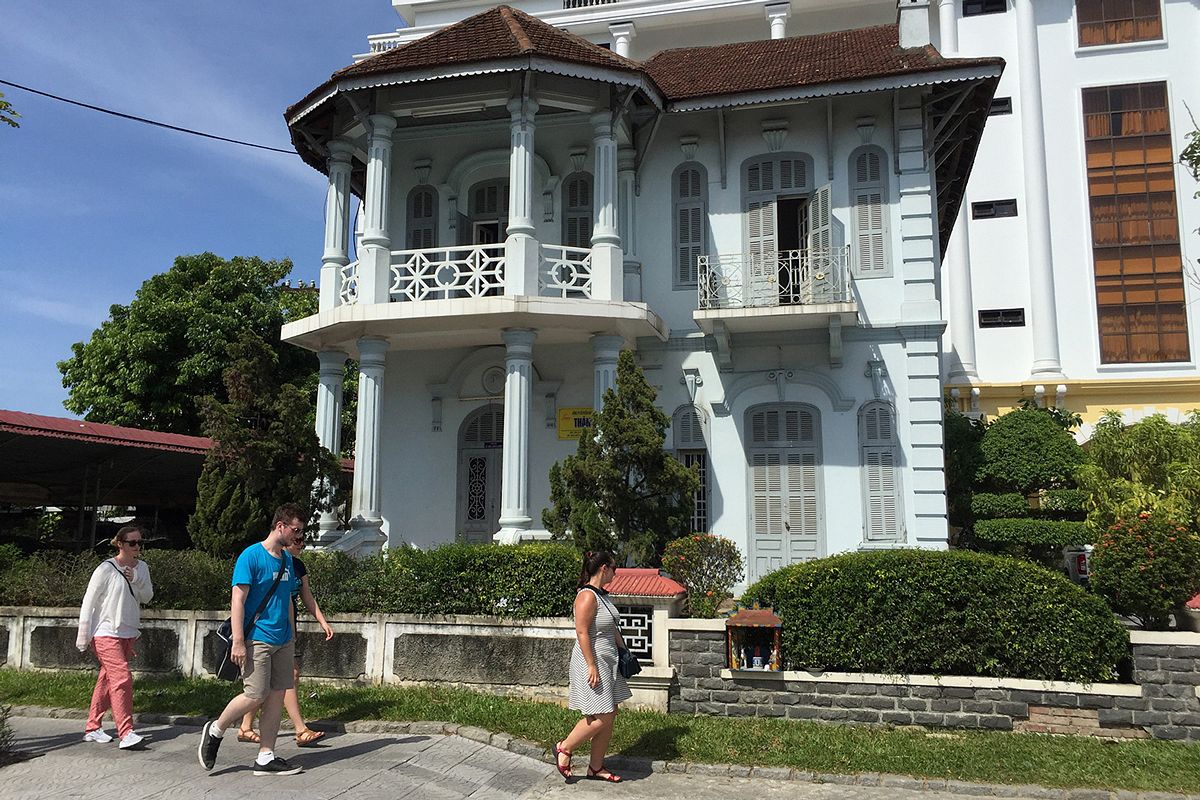To celebrate Vietnamese Teacher’s Day 2016, this week’s Street Cred brings you the story of one of Vietnam's most beloved educators, Chu Van An.
According to The Complete Annals of Dai Viet (Dai Viet Su Ky Toan Thu), Chu Van An was born in 1292 in Van Thon village, now part of Thanh Tri District in Hanoi. He passed the government academic exams but didn’t become an official, instead deciding to start a school in Huynh Cung village near the To Lich River in Hanoi.
His syllabus mostly revolved around Confucian teachings, thus making An one of the most important figures in spreading Confucianism to Vietnam, which was dominated by Buddhist beliefs at the time.
As it turned out, An’s decision not to enter the government was a wise one, as he had a real knack for teaching. He strongly believed that a good teacher must be strict and act as a role model, both intellectually and ethically, for his students. During his teaching career, many top officials in the Vietnamese government began as his students, including Emperor Tran Minh Tong’s son Tran Vuong, who later went on to become Emperor Tran Hien Tong.
Chu Van An’s school later became one of the most trusted institutions in Hanoi because of An’s capability as an educator. Emperor Tran Minh Tong heard of the school’s revered teacher and invited An to teach his son at the citadel's Quoc Tu Giam (Temple of Confucius).
While Chu Van An’s professional career was straightforward in official historical documents, his fame and ability as an educator have inspired many a myth among the common people. In one such story, An’s teaching ability was such that even river spirits attended his classes. Rumor has it that when he opened a school in his hometown, there was one particulary hard-working student who, without fail, attended every class, arriving early every time. An was impressed with the positive learning attitude of the student but nobody knew who the student was.
One day, An asked a servant to follow the student after class and found out that the elusive student disappeared in the middle of the Dam Dai swamp. Chu Van An arrived at the conclusion that he must have been a river spirit.
The weather that year was not kind to Hanoi’s farming community as water was scarce and there were extended periods of drought. After finishing a lesson, An gathered his students and asked if any of them had ideas to help the people. The water spirit was hesitant at first, but eventually said: “If I help you out, I would be violating the code of conduct of the heaven’s court. But I would like to lend a hand; should anything happen, I hope that you can lend a hand back.”
Then, the spirit stood in the middle of the courtyard and started rubbing ink – the kind mainly used for Chinese calligraphy – on an inkstone. After a few moment of chanting and splattering the ink on the yard, he hurled both the brush and the ink into the sky, to Chu Van An and other classmates’ astonishment. Like a miracle, right at that moment, dark clouds appeared and a bout of torrential rain swept through the entire town.
Things didn’t end well for the river spirit, however. That night, a thunderstorm struck the swamp and in the morning, villagers reported seeing the carcass of a huge water serpent floating on the water surface. Chu Van An knew right away that the creature was his student, who was punished by the gods for helping An do the rain dance. The realization brought him to tears. An and farmers from surrounding villages held a funeral for the unfortunate spirit and established a small pagoda in the neighborhood to honor its help.
According to the legend, the place where the inkstone fell after the rain dance ritual became a swamp whose water remains an ink-like shade of black. Locals referred to the swamp as Dam Muc, or Ink Swamp.
In today’s Vietnam, Chu Van An’s name graces streets in big cities all of the country. In Saigon, his namesake is a small neighborhood street in District 6. Scores of schools are also named after the man because of his background as an educator.
















